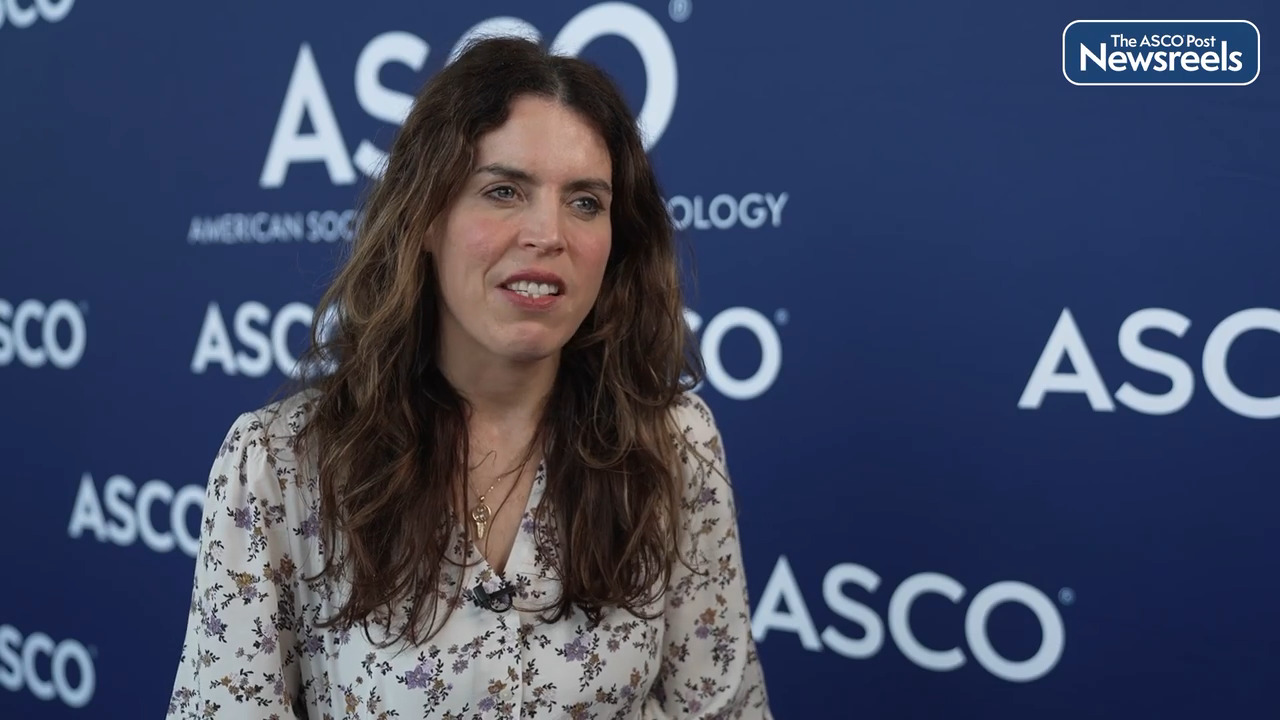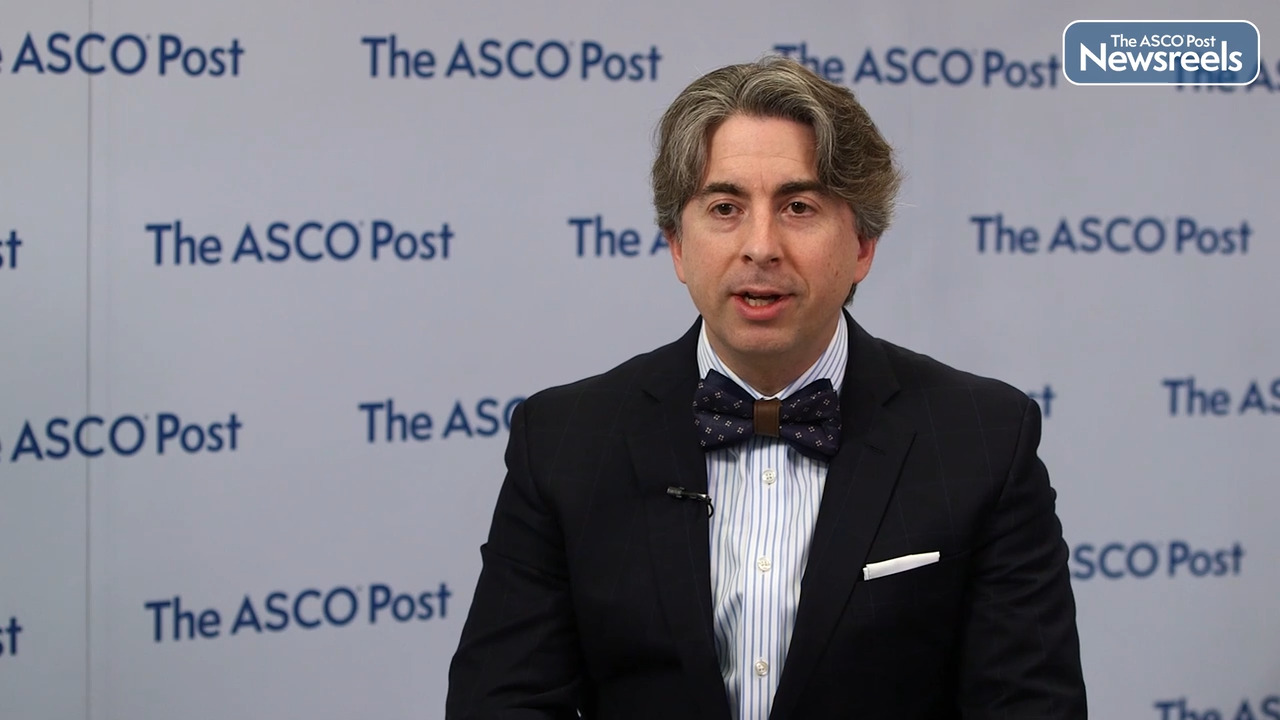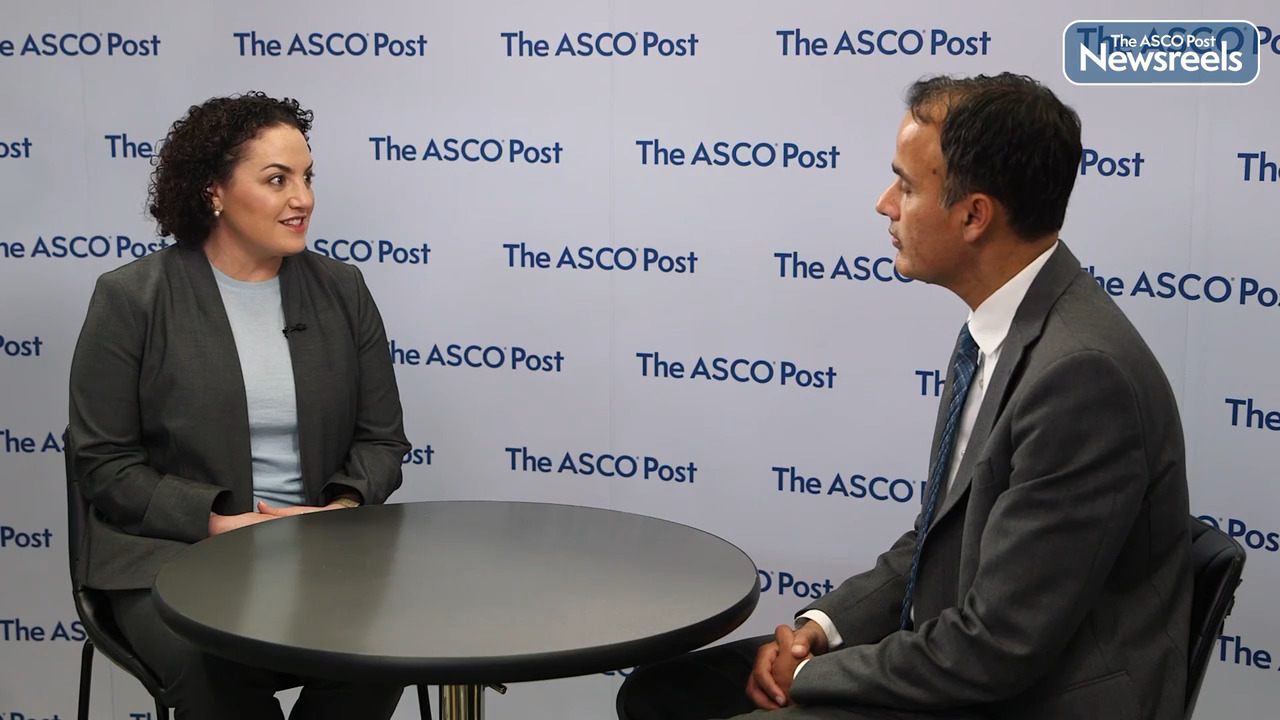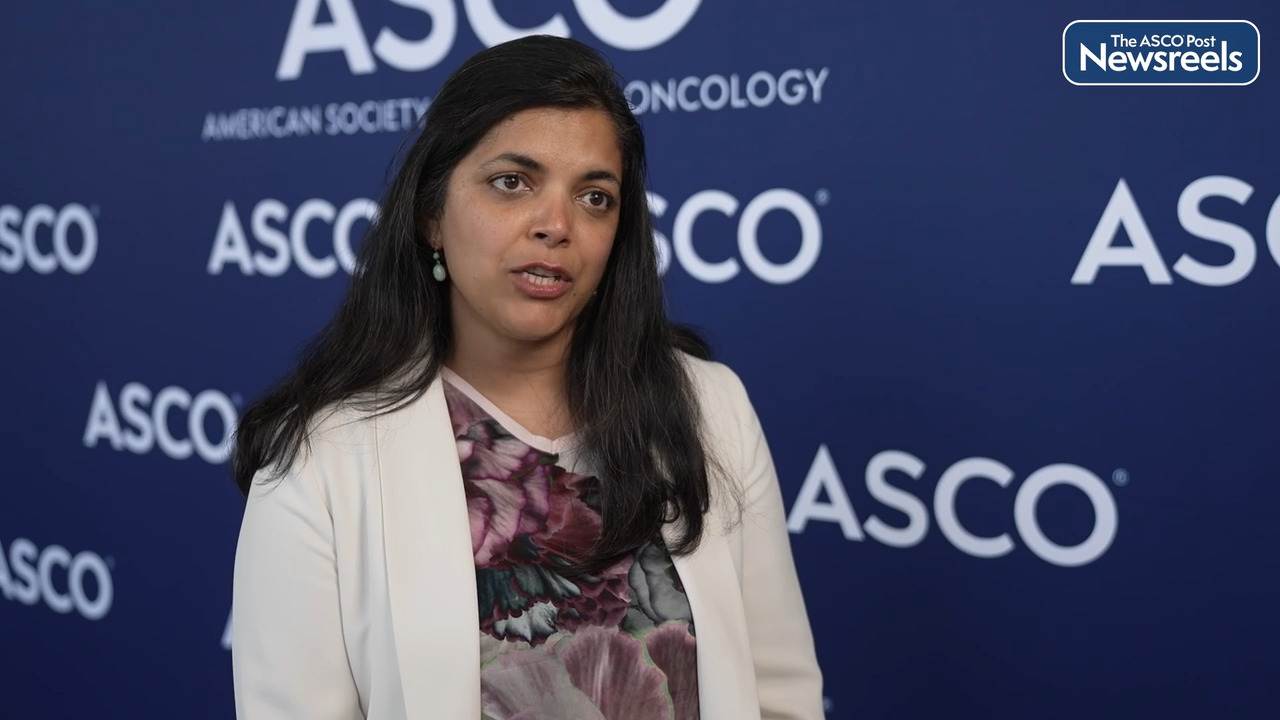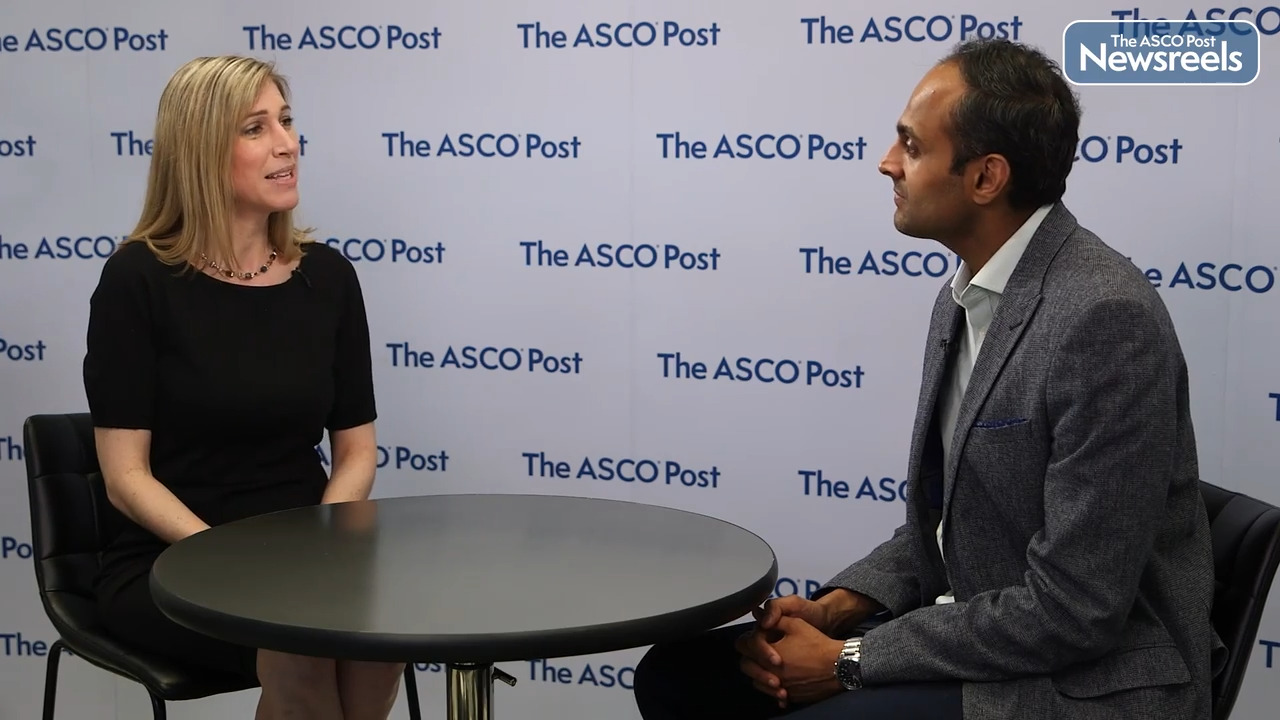Transcript
Disclaimer: This video transcript has not been proofread or edited and may contain errors.
Amer Merthql Zeidan, MBBS, MHS:
The IMerge was randomized, placebo-controlled, double-blind study looking at the use of imetelstat versus placebo in patients with lower-risk MDS who were heavily transfusion-dependent after ESA failure, or for patients who are unlikely to respond to ESAs. Imetelstat is a first-in-class direct competitive inhibitor of the telomerase. And preclinical data, as well as early phase-II data suggested very good activity in patients who are transfusion dependent with lower risk MDS.
So, the Imerge study was conducted to look at this in a randomized setting where 178 patients who had lower risk MDS by the IPSS with low or intermediate-1 risk groups basically were randomized to receive imetelstat at the standard dose, which is 7.5 milligram per kilogram intravenously every four weeks, or to get a placebo. Those patients had to have more than four units of blood at baseline every eight weeks, so they were very heavily transfusion-dependent. And actually the median transfusion dependency was six units, basically, every eight weeks.
The primary endpoint of the study was eight-week transfusion independence. But there were a number of other secondary endpoints that looked at the durability as well as the potential disease modification effect of imetelstat. What we observed in the study is that the study met its primary endpoint. The rate of transfusion independence at eight weeks, basically, for patients who were on the study was 40% with imetelstat, compared to 15% with placebo. And importantly, this was durable, so the median duration of transfusion independence for responders was 52 weeks, compared to 13 weeks.
And I think one of the most impressive findings in the study is that the median hemoglobin rise for patients who received imetelstat and responded was 3.6 gram per deciliter. So, those patients went from 8 to more than 11 grams per deciliter of hemoglobin. And this is a very good, impressive rise. It was durable. And as I mentioned, those patients were very heavily transfusion-dependent at baseline. The median transfusion dependency was six units per eight weeks. What we also observed is that there was evidence of disease modification, and that was seen through the reduction in the viable allele frequency of the most commonly mutated genes in patients with MDS, including SF3B1, which also correlated with the duration of transfusion independence and the rise in the hemoglobin.
In terms of the side effects, they were expected, along the lines of what we have seen in the phase II. There were basically cytopenias and the cytopenias, however, did not lead to increase in the severe clinical consequences, such as grade 3 or higher bleeding infections or febrile neutropenia. Generally, it was manageable by dose reduction and dose modification interruption. And there were also non-hematologic toxicities, but most of those were lower grade, grade 1 and 2, and also generally reversible by dose modification.
So, in general, I think this is a very good option that is leading to sustained and significant increase in the hemoglobin and transfusion independence among lower-risk patients with MDS who had not responded or stopped responding to ESAs, and I hope it's going to be one good option for our patients.
